Understanding New Frontiers in Autism Care
Autism spectrum disorder (ASD) presents complex challenges that often require multidisciplinary approaches for effective management. While applied behavior analysis (ABA) remains a cornerstone therapy for autism, recent clinical studies shed light on the promising role of cannabidiol (CBD) oil as an adjunct treatment. This article explores how CBD oil impacts core symptoms of autism, its safety profile, and how it may integrate with established behavioral therapies to improve outcomes for individuals with ASD.
What is Applied Behavior Analysis (ABA) and Its Role in Autism Treatment?
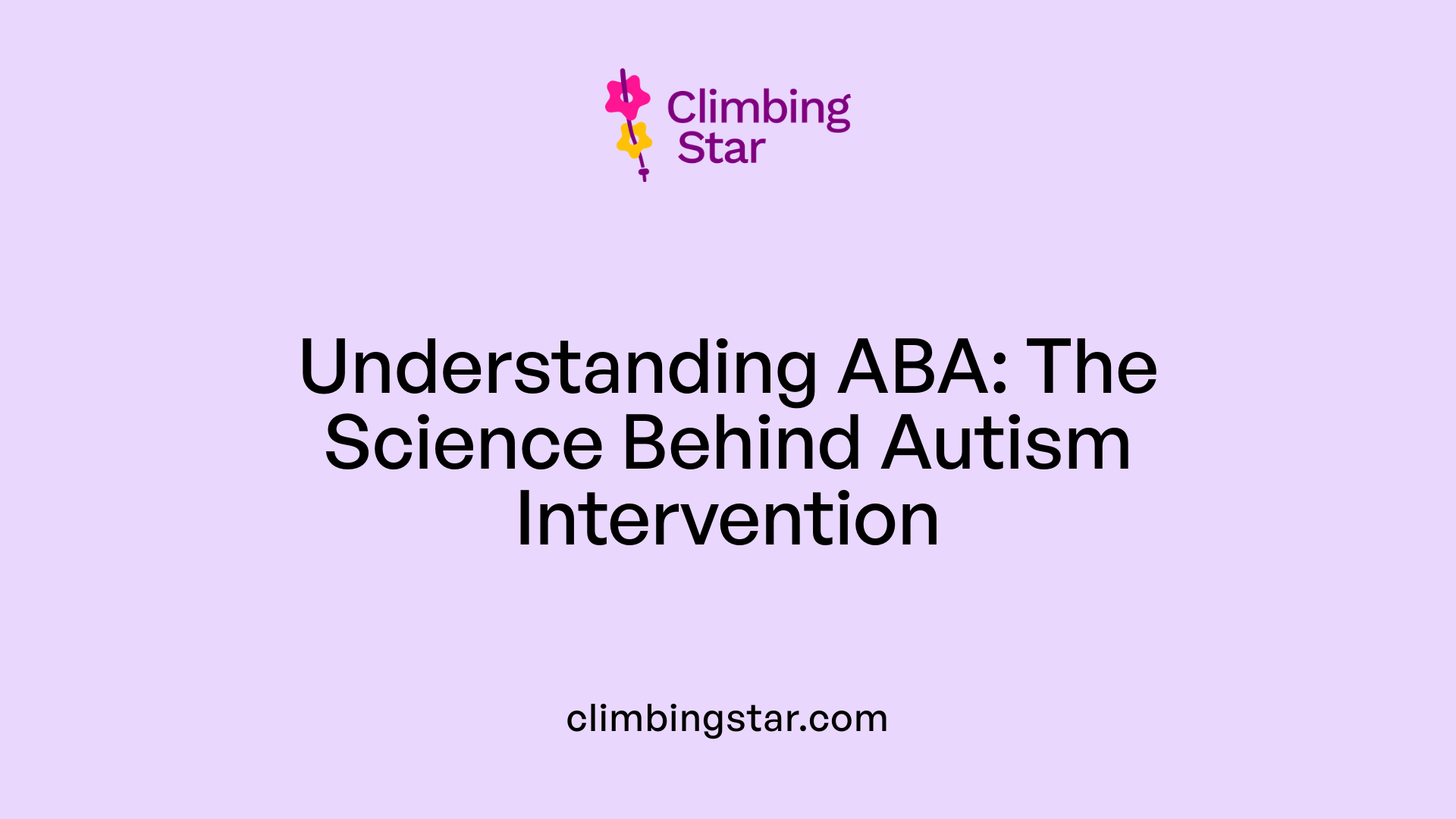
What is applied behavior analysis (ABA) therapy and how is it used in the treatment of autism?
Applied behavior analysis (ABA) is a scientific, evidence-based therapy designed to enhance helpful behaviors and reduce harmful or unhelpful ones in individuals with autism spectrum disorder (ASD). ABA uses techniques like positive reinforcement and targeted behavioral interventions, such as Discrete Trial Training and Pivotal Response Treatment, to develop skills across communication, social interaction, and daily living.
ABA programs are highly individualized to meet each person's unique needs. Professionals carefully design these plans based on detailed assessments, then continuously monitor progress to adjust goals and methods effectively. When started early and provided intensively—often more than 20 hours per week—ABA has been shown to substantially improve intellectual ability, language, social skills, and adaptive behavior.
Who typically provides ABA therapy services for individuals with autism?
ABA therapy is delivered by licensed professionals, including Board Certified Behavior Analysts (BCBAs), behavior therapists, and specialists trained in behavioral analysis. These providers usually hold advanced degrees and rigorous certifications ensuring they are qualified to tailor and oversee personalized treatment plans.
Services may be offered individually or through specialized clinics and companies. Family involvement is often encouraged to help generalize skills outside therapy sessions. Coverage for ABA is increasingly provided by private insurance and Medicaid, enhancing access for many families.
What are the common goals and outcomes targeted by ABA therapy in autism treatment?
ABA therapy aims to improve key functional areas such as communication, social interaction, self-care, and daily living skills. It focuses on increasing positive behaviors like requesting help, sharing, or following instructions, while decreasing behaviors that interfere with learning or safety, such as aggression or self-injury.
The expected outcomes include greater independence, improved academic and cognitive abilities, and enhanced overall quality of life. Through careful application of positive reinforcement and ongoing data collection, ABA strives to help individuals with autism achieve meaningful progress and more fulfilling daily lives.
Clinical Evidence Supporting CBD Oil in Autism Spectrum Disorder
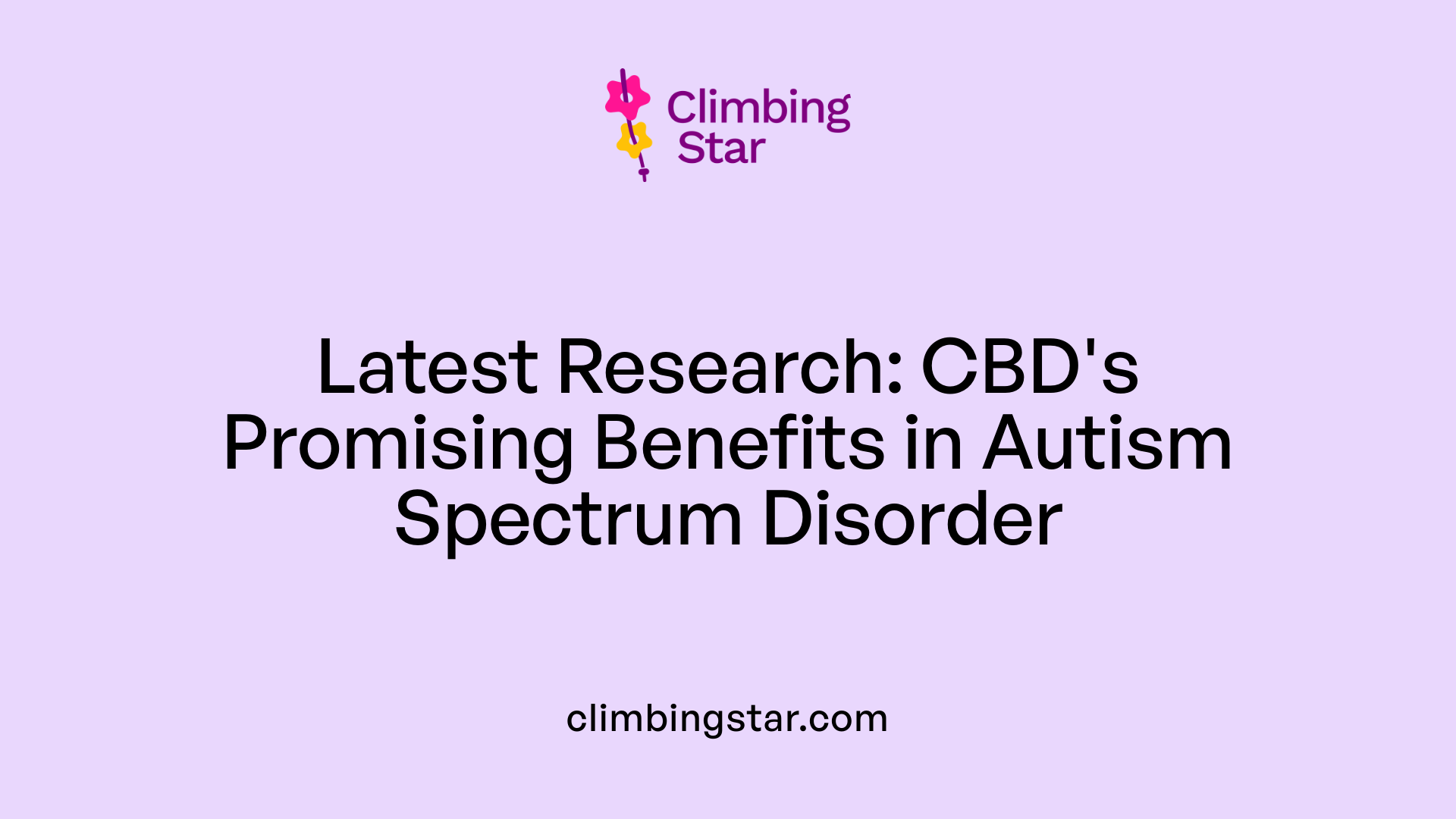
What do randomized placebo-controlled studies reveal about CBD's effects on ASD?
Multiple randomized, placebo-controlled studies involving 276 children and adolescents aged 5 to 21 have demonstrated that CBD cannabis extracts significantly enhance social responsiveness in patients with ASD. These trials highlight moderate improvements in social communication abilities and reductions in disruptive, repetitive behaviors.
What dosage levels and product formulations are used?
CBD dosages in these studies ranged from 1 mg/kg to 10 mg/kg per day. The cannabis extracts typically contained minimal THC, often maintaining a THC:CBD ratio such as 1:20, ensuring safety and tolerability while focusing on cannabidiol's effects.
How effective is CBD in addressing core ASD symptoms?
Clinical data show that CBD administration improves social responsiveness, reduces repetitive and disruptive behaviors, and alleviates anxiety. For example, reductions of approximately 30% were noted in irritability, social withdrawal, and hyperactivity. About 83.5% of symptoms improved in responders, with significant gains in social interaction and behavior regulation.
What additional benefits and behavioral improvements have been reported?
The treatment was also associated with slight sleep improvements and allowed 40% of patients to reduce or discontinue other medications. Families reported enhanced quality of life and lower caregiving stress following CBD therapy.
What are key aspects of study populations and methods?
Studies included participants diagnosed with ASD ranging from mild to severe levels, typically confirmed by DSM-5 criteria, with some focused on severe cases exhibiting Level 2 or 3 impairments. Assessment tools such as the Autism Diagnostic Observation Schedule (ADOS) and Social Responsiveness Scale (SRS) were employed to objectively measure changes in social and adaptive behaviors during treatment periods averaging 6 to 11 months.
Safety Profile and Side Effects of CBD in Pediatric Autism Treatment
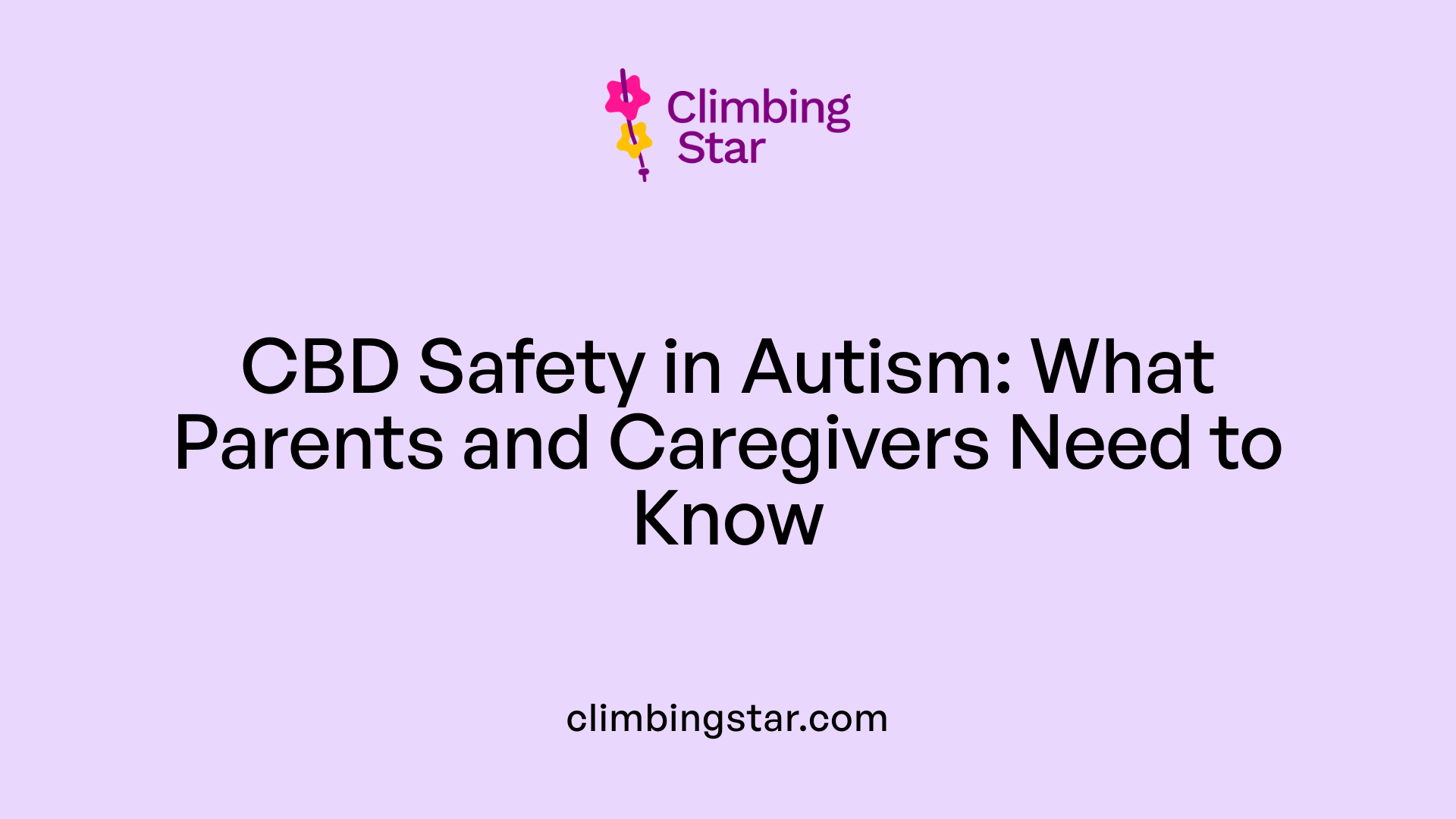
What adverse events were reported in clinical trials with CBD for ASD?
Clinical studies involving CBD cannabis extracts in children and adolescents with autism spectrum disorder (ASD) frequently reported mild to moderate adverse effects. Approximately 65% of patients experienced side effects such as increased irritability and decreased appetite. These effects were generally transient and did not outweigh the therapeutic benefits observed.
How do the side effects of CBD compare to placebo and existing treatments?
CBD treatments exhibited a favorable safety profile, with no significant increase in adverse events compared to placebo groups. Furthermore, medical cannabis therapy, whether administered as monotherapy or as an add-on, was as safe as conventional ASD treatments, showing no new or severe safety concerns.
How often and what types of mild to moderate side effects occur?
The most commonly reported side effects include mild irritability and reduced appetite. These side effects were mostly temporary and manageable without discontinuing therapy. No significant cognitive impairments or serious safety issues were attributed to CBD use.
What impact does CBD have on co-medication use and dosage reduction?
In 40% of treated children, concomitant medications could be reduced or partially discontinued during CBD cannabis extract treatment. This suggests a potential for CBD to lower reliance on other medications and contribute to simplified therapeutic regimens.
What are the long-term safety observations and follow-up durations?
Studies included follow-up periods typically around 11 months, during which adverse effects remained mild and did not escalate. No long-term safety concerns have emerged from these durations, indicating that purified CBD may be a safe option for long-term use in pediatric ASD treatment plans.
Integrating CBD Oil with ABA and Other Therapies in Autism Care
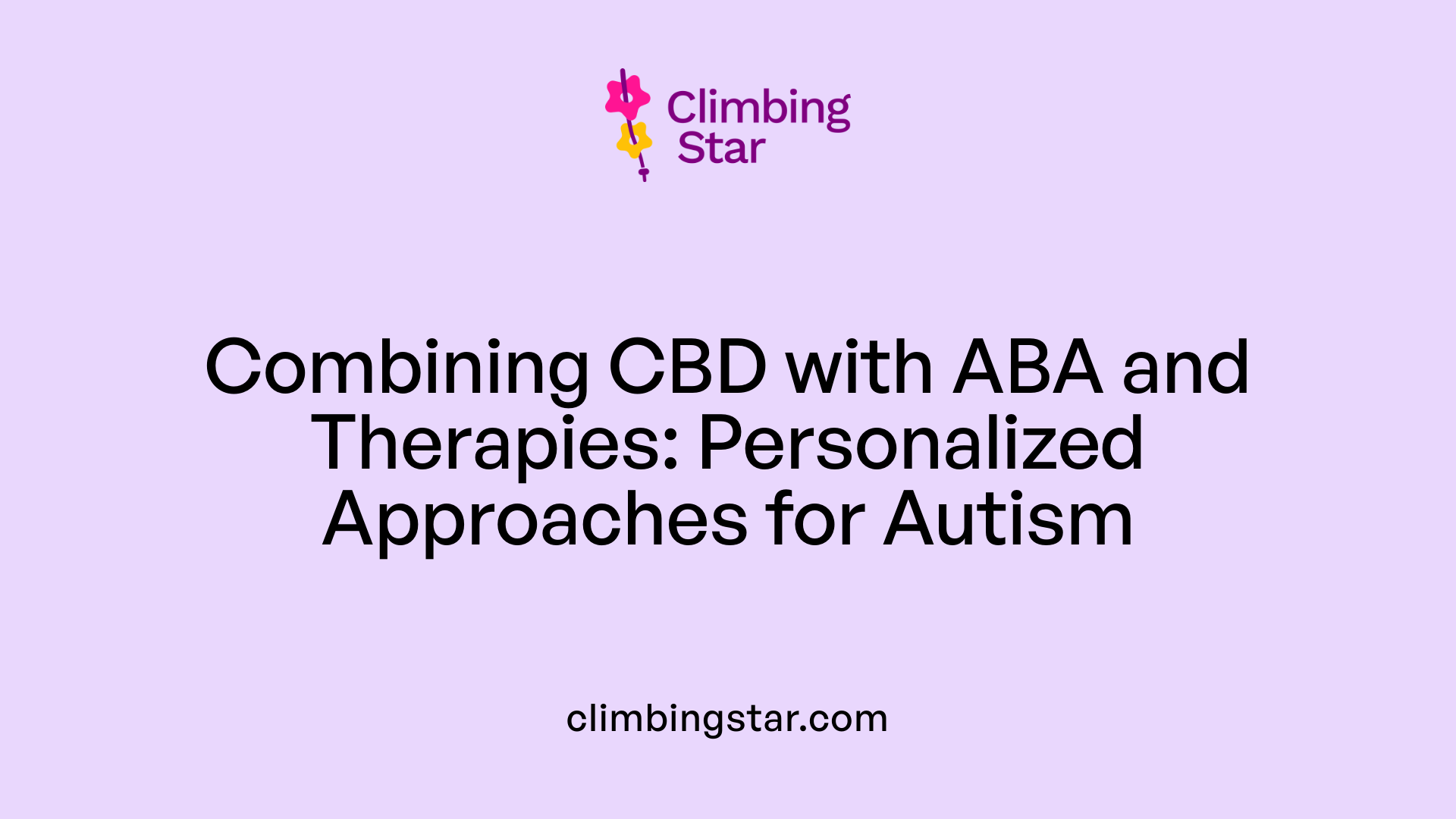
How Does CBD Function as Monotherapy Versus Add-On Therapy in Autism Treatment?
CBD cannabis extracts have been explored both as a standalone treatment and as an adjunct to standard therapies in autism spectrum disorder (ASD) care. Clinical trials involving 109 participants compared these approaches, finding no significant differences between monotherapy and add-on therapy groups in terms of efficacy or safety. Average daily CBD doses ranged around 3 mg/kg, including low THC levels, showing consistent pharmacokinetics and stable blood CBD levels across groups.
Is There a Difference in Effectiveness or Safety Between Monotherapy and Add-On Use?
Studies reveal similar safety profiles and behavioral improvements whether CBD is administered alone or alongside existing autism treatments. No significant adverse effects were observed, and both groups experienced comparable improvements in disruptive behaviors, anxiety alleviation, and social responsiveness.
What Are the Potential Benefits for Behavior and Family Well-being?
CBD treatments have demonstrated reductions in irritability, hyperactivity, and social withdrawal by approximately 30%, alongside improvements in repetitive behaviors and sleep patterns. Notably, families reported enhanced quality of life and lower stress, partly because 40% of children could reduce concomitant medications. These improvements promote better family dynamics and support holistic care.
Why Is an Individualized Treatment Plan Important?
Given ASD's heterogeneity, integrating CBD cannabis extracts with behavioral therapies like Applied Behavior Analysis (ABA) allows tailoring interventions to patient needs. Combining pharmacological approaches to target core symptoms and comorbidities with behavioral strategies maximizes therapeutic outcomes and adapts to individual symptom severity.
What Are the Current Limitations and Research Needs?
The available evidence, largely from randomized, placebo-controlled studies and open-label trials, supports CBD's promise but highlights the necessity for further rigorous research. Standardized protocols, larger sample sizes, and long-term follow-up studies are imperative to establish optimized dosing, safety, and efficacy guidelines within comprehensive autism care.
| Aspect | Findings | Implications for Autism Care |
|---|---|---|
| CBD Usage Mode | Monotherapy vs. Add-on show no efficacy/safety difference | Flexible integration into treatment plans |
| Behavioral Impact | ~30% reduction in irritability, hyperactivity, social withdrawal | Improves patient behavior and responsiveness |
| Family Outcomes | Improved quality of life, reduced stress, medication reduction | Enhanced family dynamics and support structures |
| Need for Individualization | ASD symptom variability requires tailored approaches | Combined behavioral and pharmacological treatments |
| Research Status | Promising results with a call for larger, longer studies | Future protocol standardization and optimization |
Potential Impacts of CBD Oil on Core and Ancillary Autism Symptoms
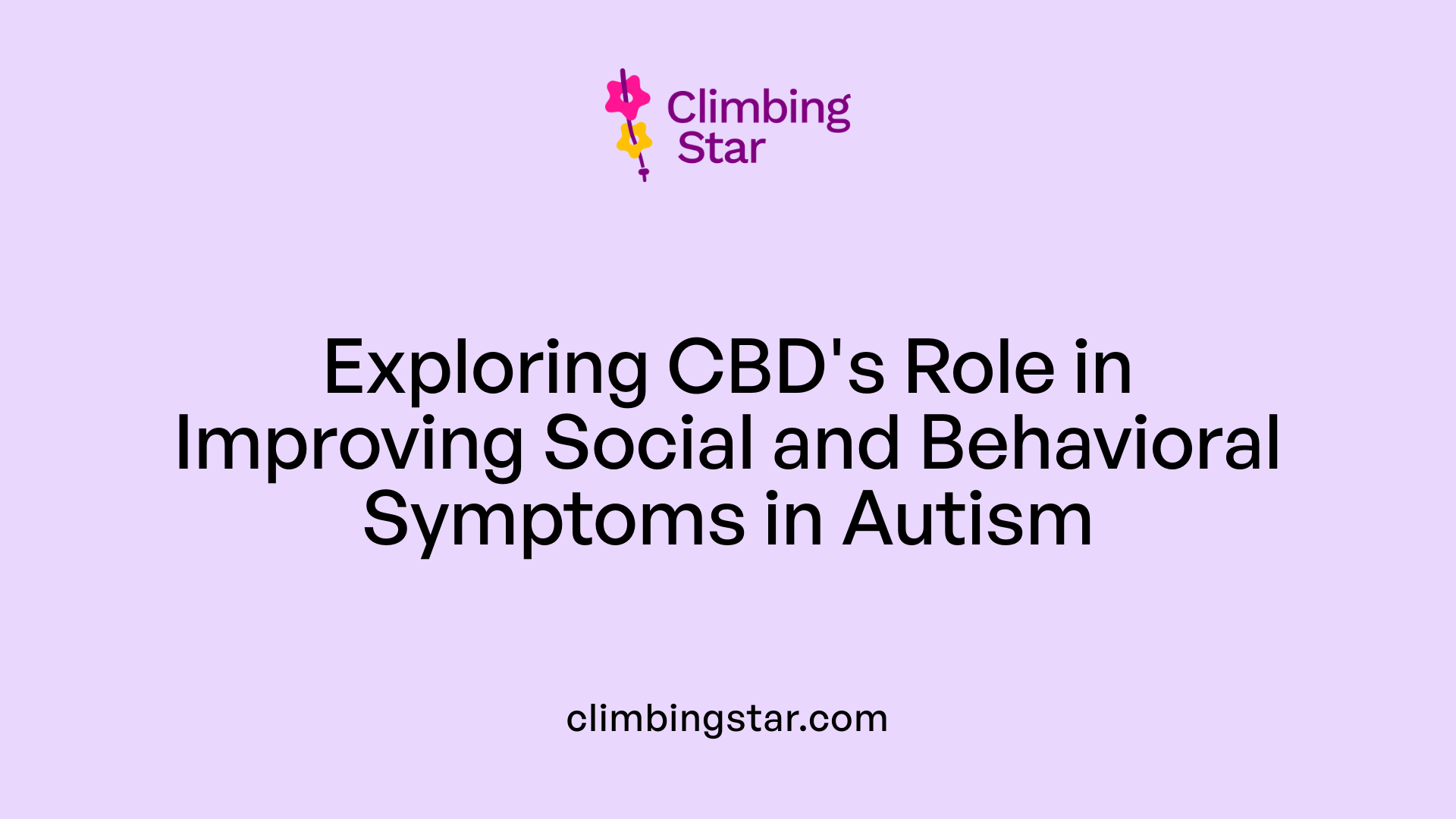
Improvements in Social Communication Measured by ADOS and SRS
Studies involving CBD-rich cannabis treatment for children and adolescents with Autism Spectrum Disorder (ASD) have demonstrated notable enhancements in social communication abilities. Standardized tools like the Autism Diagnostic Observation Schedule (ADOS) and the Social Responsiveness Scale (SRS) showed significant improvement, particularly among participants with more severe baseline symptoms. These improvements indicate better social interaction and responsiveness.
Reduction in Irritability, Social Withdrawal, Hyperactivity, and Restricted Repetitive Behaviors
CBD cannabis extracts have been reported to reduce disruptive behaviors commonly associated with ASD. Observed reductions include approximately 30% decreases in irritability, social withdrawal, and hyperactivity. Additionally, about half of the patients experienced improvement in restricted and repetitive behaviors, which are core features of ASD.
Enhancements in Adaptive Behavior Domains
Adaptive behaviors, especially in socialization and communication as measured by the Vineland scale, also improved following CBD treatment. These improvements contribute to better daily functioning and interpersonal skills for children and adolescents managing ASD.
Positive Effects on Sleep and Anxiety Symptoms
Patients experienced slight improvements in sleep patterns and anxiety symptoms, which are frequent ancillary challenges in ASD. CBD’s calming effects may help alleviate these issues, potentially contributing to overall quality of life enhancements.
Stability of Cognitive Abilities
Importantly, cognitive function remained stable throughout CBD treatment with no observed negative impacts. This stability suggests that while social and behavioral symptoms improve, cognitive development is not adversely affected by CBD therapy.
Together, these findings highlight that CBD oil may offer meaningful benefits for managing core and related symptoms of ASD without compromising cognitive function, supporting its consideration as part of treatment strategies.
Looking Ahead: The Role of CBD Oil in ASD Treatment
Emerging research indicates that CBD oil holds promise as a complementary treatment addressing core and associated symptoms of autism spectrum disorder, including social difficulties, repetitive behaviors, and anxiety. Its favorable safety profile alongside traditional therapies such as applied behavior analysis suggests a potential role in integrated care plans that prioritize individualized needs. While current studies provide encouraging data, comprehensive long-term research is crucial to fully understand dosing strategies, mechanisms, and optimal therapeutic combinations. For families and professionals navigating autism treatment, CBD oil may soon represent a valuable adjunct in broadening intervention options and improving quality of life.
References
- Cannabidiol Therapy Could Reduce Symptoms in Autistic ...
- Purified cannabidiol leads to improvement of severe ...
- Evaluating the impact of cannabis oil for autistic children ...
- Children and adolescents with ASD treated with CBD-rich ...
- Applied Behavior Analysis (ABA)
- ABA Therapy Goals: 25 Practical Examples & Timelines
- 5 Outstanding ABA Therapy Outcomes
- Applied Behavior Analysis (ABA)
- Applied Behavior Analysis (ABA)






